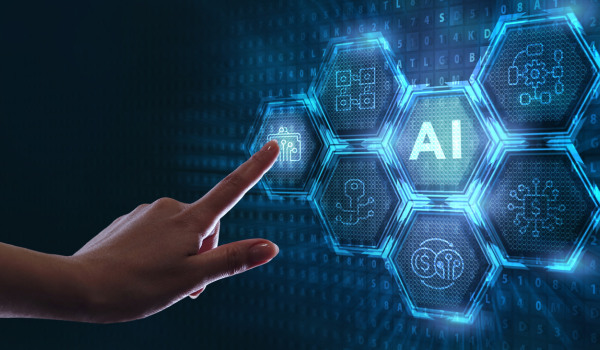The Do's and Don'ts of Company Picnics: A Guide to Summer Party Etiquette
However, like any other company event involving drinking, there's the risk of getting TOO personal....
3 mins
AI integration has tangible benefits—such as reduced processing time, increased accuracy, and predictive analytics capabilities. However, many HR staff have potential reservations or concerns about AI. It is vital to choose the right solution for seamless integration.
The benefits of AI for payroll include implementing payroll automation in the form of "robotic process automation" (RPA). Utilizing payroll automation to complete mundane, repetitive tasks frees up staff work time that can be spent on more productive issues. Here are some of the key points for using AI in payroll.
For AI-driven systems to function effectively, data must be accurately captured, validated, and aggregated for processing and storage.
For example, systems that use a smartphone app for employee timecards allow employees to clock in and out using their phones. The app timestamps the event with the physical tracking data of the phone's location obtained via GPS and authenticates the worker using biometrics such as fingerprint or facial recognition. An application programming interface (API) links the data collection from all employees with the payroll processing system, thereby eliminating any manual data entry, except for adjustments of anomalies.
Timecard approval by supervisors used to be a laborious process, with the supervisor checking each employee’s timecard and work hours manually. When this process is automated, the boss only needs to review anomalies and exceptions. For example, if an employee lost their phone, a supervisor would see that the clock-in event was missing and be able to make a manual adjustment.
Manual processing of time-off requests and work schedules used to be a labor-intensive job. AI makes this process easier with data-driven decisions that optimize employees’ schedules based on availability, training, skills, and other characteristics. An AI-driven solution can consider past attendance records and work preferences. It can analyze data from multiple sources to produce optimal results for the company and its employees.
Employees who travel frequently for business or work from home in a different tax jurisdiction than where the company is located may be subject to taxation in multiple jurisdictions. Tracking this data by hand is challenging. By collecting the data using geo-location of the employee’s phone, an AI-driven system easily handles these tax issues.
Earned wage access (EWA) is a benefit offered by a company that allows an employee to withdraw earned wages at any time needed rather than waiting for the next payroll payment. Using AI to analyze EWA utilization helps companies understand employees' financial wellness. From an employee’s perspective, having immediate access to earned income when needed may boost morale and help increase productivity.
AI-driven chatbots can be trained on frequently asked questions (FAQs) from the company’s knowledge base about payroll and HR issues. The questions can be asked and answered using native language processing chatbots. Employees appreciate having immediate access to answers to common questions. Moreover, payroll staff spends far less time handling employee inquiries.
Human payroll auditors are trained to spot anomalies in the payroll output. This process is made far easier and more effective when machine learning is used and AI presents the anomalies it discovers. Payroll account reconciliation is much more efficient when it is AI-driven.
AI-driven payroll solutions will help redefine the work of a payroll professional. Using machine learning and AI allows the analysis of payroll processing in new ways. The system can identify payroll anomalies, which require further human investigation. It also provides a new predictive management tool that gives insights into the workforce deployments optimized to meet an organization’s business strategy and priorities.
Payroll professionals who are early adopters of AI technology will have the advantage of getting a step ahead on the learning curve. The focus of payroll processing in the future will be on data integrity, analysis of the workforce, process improvement, and performance management. For these efforts, AI still needs human supervision and oversight.
AI is revolutionizing the payroll sector by automating repetitive tasks, reducing errors, and delivering helpful insights. Embracing AI-driven payroll solutions can optimize the payroll process, ensuring better accuracy, efficiency, and compliance while also freeing up time for HR professionals to focus on strategic activities.
Ready to step into the future of payroll? Discover how Exact Payroll's solutions can transform your payroll processes. Contact us to learn more now
However, like any other company event involving drinking, there's the risk of getting TOO personal....
3 mins
Given your standing in the community—among donors, regulators, and those your nonprofit serves—it's...
4 mins
Many of the tasks associated with payroll can simply be...
3 mins
Exact Payroll Inc
3993 Huntingdon Pike Suite 110
Huntingdon Valley, PA 19006
Mon - Fri: 8:30AM - 5:00PM
Company
Subscribe to Newsletter
